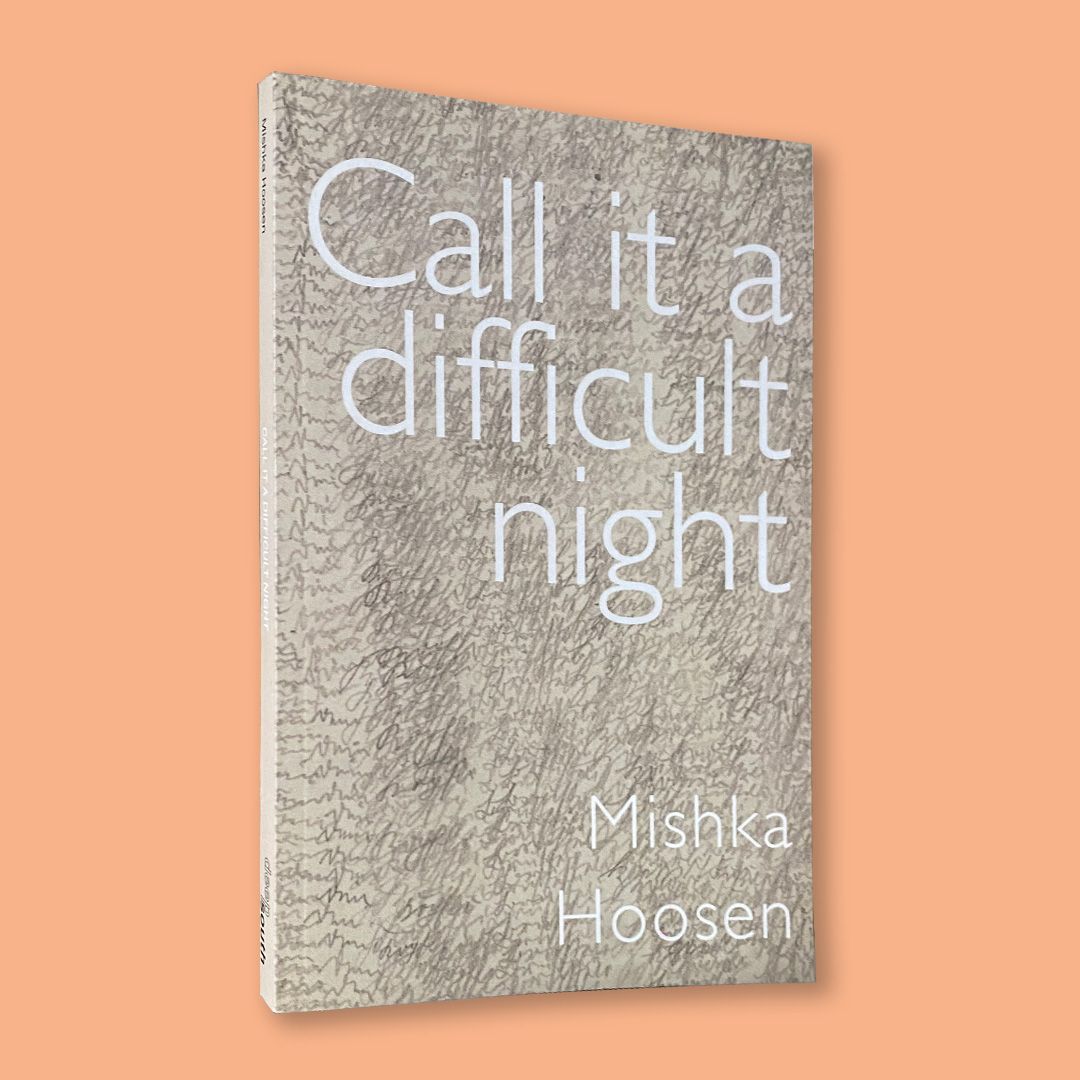“Mandela was not the only head of state taken in by Koagne. Le king kept snapshots of himself with many a man of power, among them Mobutu Sese Seko and Denis Sassou Nguesso […] He took Mobutu for 15 million dollars. Blaise Compaoré of Burkina Faso lost 40 million to him. Sassou, Etienne Eyadéma of Togo, several high officials of Gabon, Tanzania and Kenya, a member of the Spanish government and an ex-operative of the Israeli Mossad were bamboozled as well.” – Dominique Malaquais (Blood Money: A Douala Chronicle).
Bantu Serenade by Ntone Edjabe (featuring Nah-ee-lah) (read excerpt)
Santu Mofokeng: Trajectory of a street photographer (part1) (read excerpt)
Binyavanga Wainaina: Hell In Bed With Mrs Peprah (read excerpt)
Dominique Malaquais: Lindela (the winnie suite) (read excerpt)
Boubacar Boris Diop: Myriem (read excerpt)

Cover:
Neo Muyanga
Call it A Difficult Night by Mishka Hoosen (Deep South, 2016)
Call it A Difficult Night by Mishka Hoosen (Deep South, 2016)
Call it a difficult night is a story about madness. Using anecdotes, poems, dialogue, and fragments of historical research, it follows a nonlinear path in tracing the life of its young narrator/protagonist.
Institutionalised after a ‘final break’, a young woman remembers in sharp detail her disturbing childhood visions, which have become overwhelming by the time she is at a boarding school in the US and later at university in South Africa. When she finally gets a diagnosis -- temporal lobe epilepsy -- a doctor explains that she is likely to be either demented or brain dead by the time she's 30.
Set mainly during the short spell in the mental hospital, the story proceeds through encounters with nurses, doctors, other patients, and also the friends who visit her – many of them frightened by her state of mind. These encounters, painful but quite often funny, takes us deeper into the feelings of the young woman and further into the workings the mental health system which generates the definitions of madness. She is defiant in her noncompliance and deeply suspicious of her treatment. She is sure that her hallucinations, dangerous and terrifying as they are, are preferable to the dulling effects of her medication and its theft of her creativity.

